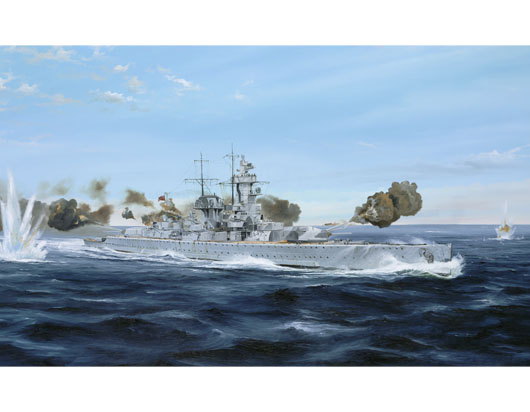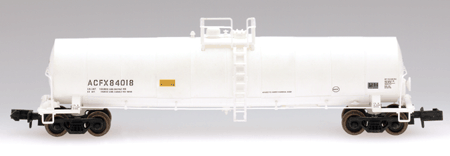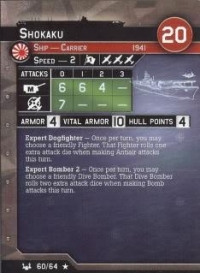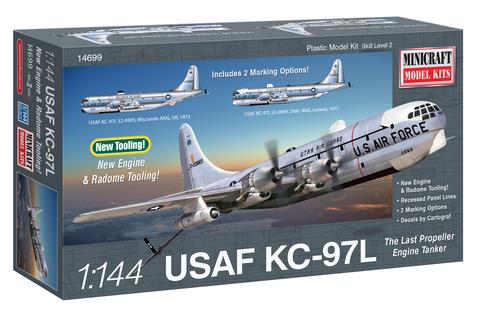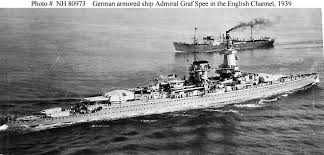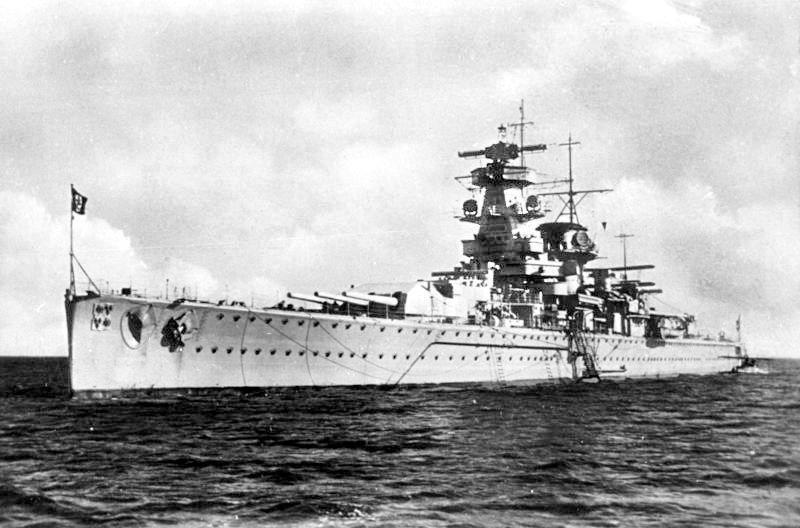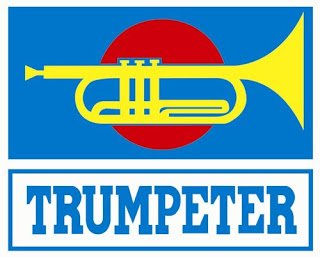Class: The Deutschland class was a series of three Panzerschiffe ("armored ships"), a form of heavily armed cruiser, built by the Reichsmarine officially in accordance with restrictions imposed by the Treaty of Versailles. The class, which comprised the ships Deutschland, Admiral Scheer, and Admiral Graf Spee, were all stated to displace 10,000 long tons (10,000 t) in accordance with the Treaty, though they actually displaced 10,600 to 12,340 long tons (10,770 to 12,540 t) at standard displacement. Despite violating the weight limitation, the design for the ships incorporated several radical innovations to save weight. They were the first major warships to use welding and all-diesel propulsion. Due to their heavy armament of six 28 cm (11 in) guns, the British began referring to the vessels as "pocket battleships". The Deutschland class ships were initially classified as Panzerschiffe or "armored ships", but the Kriegsmarine reclassified them as heavy cruisers in February 1940.
The three ships were built between 1929 and 1936 by the Deutsche Werke and Reichsmarinewerft in Kiel and Wilhelmshaven, respectively. They saw heavy service with the German Navy. All three vessels served on non-intervention patrols during the Spanish Civil War. While on patrol, Deutschland was attacked by Republican bombers, and in response, Admiral Scheer bombarded the port of Almería. In 1937, Admiral Graf Spee represented Germany at the Coronation Review for Britain's King George VI. For the rest of their peacetime careers, the ships conducted a series of fleet maneuvers in the Atlantic and visited numerous foreign ports in goodwill tours.
Before the outbreak of World War II, Deutschland and Admiral Graf Spee were deployed to the Atlantic to put them in position to attack Allied merchant traffic once war was declared. Admiral Scheer remained in port for periodic maintenance. Deutschland was not particularly successful on her raiding sortie, during which she sank or captured three ships. She then returned to Germany where she was renamed Lützow. Admiral Graf Spee sank nine vessels in the South Atlantic before she was confronted by three British cruisers at the Battle of the River Plate. Although she damaged the British ships severely, she was herself damaged and her engines were in poor condition. Coupled with false reports of British reinforcements, the state of the ship convinced Hans Langsdorff, her commander, to scuttle the ship outside Montevideo.
Lützow and Admiral Scheer were deployed to Norway in 1942 to join the attacks on Allied convoys to the Soviet Union. Admiral Scheer conducted Operation Wunderland in August 1942, a sortie into the Kara Sea to attack Soviet merchant shipping, though it ended without significant success. Lützow participated in the Battle of the Barents Sea in December 1942, a failed attempt to destroy a convoy. Both ships were damaged in the course of their deployment to Norway, and eventually returned to Germany for repairs. They ended their careers bombarding advancing Soviet forces on the Eastern Front; both ships were destroyed by British bombers in the final weeks of the war. Lützow was raised and sunk as a target by the Soviet Navy while Admiral Scheer was partially broken up in situ, with the remainder of the hulk buried beneath rubble
The three ships were built between 1929 and 1936 by the Deutsche Werke and Reichsmarinewerft in Kiel and Wilhelmshaven, respectively. They saw heavy service with the German Navy. All three vessels served on non-intervention patrols during the Spanish Civil War. While on patrol, Deutschland was attacked by Republican bombers, and in response, Admiral Scheer bombarded the port of Almería. In 1937, Admiral Graf Spee represented Germany at the Coronation Review for Britain's King George VI. For the rest of their peacetime careers, the ships conducted a series of fleet maneuvers in the Atlantic and visited numerous foreign ports in goodwill tours.
Before the outbreak of World War II, Deutschland and Admiral Graf Spee were deployed to the Atlantic to put them in position to attack Allied merchant traffic once war was declared. Admiral Scheer remained in port for periodic maintenance. Deutschland was not particularly successful on her raiding sortie, during which she sank or captured three ships. She then returned to Germany where she was renamed Lützow. Admiral Graf Spee sank nine vessels in the South Atlantic before she was confronted by three British cruisers at the Battle of the River Plate. Although she damaged the British ships severely, she was herself damaged and her engines were in poor condition. Coupled with false reports of British reinforcements, the state of the ship convinced Hans Langsdorff, her commander, to scuttle the ship outside Montevideo.
Lützow and Admiral Scheer were deployed to Norway in 1942 to join the attacks on Allied convoys to the Soviet Union. Admiral Scheer conducted Operation Wunderland in August 1942, a sortie into the Kara Sea to attack Soviet merchant shipping, though it ended without significant success. Lützow participated in the Battle of the Barents Sea in December 1942, a failed attempt to destroy a convoy. Both ships were damaged in the course of their deployment to Norway, and eventually returned to Germany for repairs. They ended their careers bombarding advancing Soviet forces on the Eastern Front; both ships were destroyed by British bombers in the final weeks of the war. Lützow was raised and sunk as a target by the Soviet Navy while Admiral Scheer was partially broken up in situ, with the remainder of the hulk buried beneath rubble
Warship: Admiral Graf Spee conducted extensive training in the Baltic and Atlantic before participating in five non-intervention patrols during the Spanish Civil War in 1936–1938. She also represented Germany during the Coronation Review for King George VI in May 1937. Admiral Graf Spee was deployed to the South Atlantic in the weeks before the outbreak of World War II, to be positioned in merchant sea lanes once war was declared. Between September and December 1939, the ship sank nine ships totaling 50,089 GRT; in response, the British and French navies formed several hunter-killer groups to track her down. These forces included four aircraft carriers, two battleships, and one battlecruiser.
Admiral Graf Spee operated in concert with the supply ship Altmark. Admiral Graf Spee was eventually confronted by three British cruisers off Uruguay at the Battle of the River Plate on 13 December 1939. She inflicted heavy damage on the British ships, but suffered damage as well, and was forced to put into port at Montevideo. Convinced by false reports of superior British naval forces approaching his ship and the poor state of his own engines, Hans Langsdorff, the commander of the ship, ordered the vessel to be scuttled. Langsdorff committed suicide three days after the scuttling. The ship was partially broken up in situ, though part of the ship remains visible above the surface of the water.
Admiral Graf Spee operated in concert with the supply ship Altmark. Admiral Graf Spee was eventually confronted by three British cruisers off Uruguay at the Battle of the River Plate on 13 December 1939. She inflicted heavy damage on the British ships, but suffered damage as well, and was forced to put into port at Montevideo. Convinced by false reports of superior British naval forces approaching his ship and the poor state of his own engines, Hans Langsdorff, the commander of the ship, ordered the vessel to be scuttled. Langsdorff committed suicide three days after the scuttling. The ship was partially broken up in situ, though part of the ship remains visible above the surface of the water.
Brand: Trumpeter is a Chinese company that manufactures plastic injection moulding military model kits. Their product line consists of model ships, aircraft, cars and military ground vehicles. The company is located in Zhongshan, China, just north of Macau. All of the design and development is done at this site and production facilities on site extend to full mold making engineering using spark erosion techniques.The factory has the capacity to take production from computer design right through to packaging with some outsourcing done on things like photo etched parts. Not only are they making models for the Trumpeter label but, under license, also for a number of other brands like Hobby Boss, Mini Hobby and even Fujimi Mokei[citation needed] and Pit-Road.
Item created by: gdm on 2019-11-05 17:01:34
If you see errors or missing data in this entry, please feel free to log in and edit it. Anyone with a Gmail account can log in instantly.
If you see errors or missing data in this entry, please feel free to log in and edit it. Anyone with a Gmail account can log in instantly.


